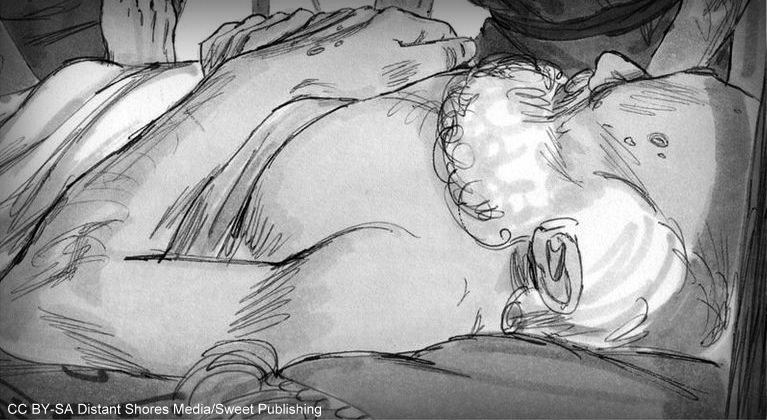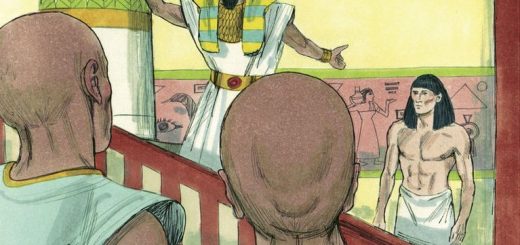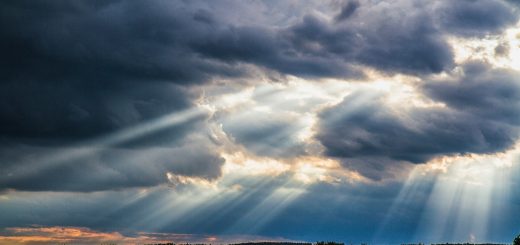Bury my Bones in Machpelah

Have you ever been promised something that you had not seen? You yearned for it with aching, even with something like homesickness. Maybe migrants know that feeling better. They live, study or work for a while in a place they do not call home.
For Jacob, Egypt was not home.
That is not to say that things were bad for them there. In fact, life seemed pretty good. If your son is prime minister (and recently gained celebrity status as ‘national saviour’), if you have landed property in the best district (Gen. 47:6), and the food’s good (well, at least there is food there); what’s more, since the family is united at last and you have had the joy of seeing your favourite son’s sons, why not settle down in Pharaoh-land?
But Pharaoh-land is not the Promised Land. For Jacob, that made all the difference.
If we recall the whole life of Jacob, we can see what was uppermost in Jacob’s mind: the promise. The blessing. He swindled his brother, and he once wrestled all night with God to get it. We learn that Jacob sojourned 17 years in Egypt. Why so long we don’t really know. But one thing we can be sure of: he saw the Promised Land as his true home.
See how solemnly he makes Joseph “thigh-swear” that he will be buried in Machpelah, in Canaan (47:29). Even Pharaoh knew how important that was (50:6). Joseph himself would later make his brothers swear an oath too, that when “God comes to help you and lead you back,” his bones must be taken too. (50:25). Papa must have impressed him. Perhaps, after having lived for so long and so productively in Egypt, Joseph needed this jolting reminder about where his true home lay.
Consider also how formally Jacob adopts the two sons of his favourite son as his own. Ephraim (“fruitful”) and Manasseh (“causing to forget”) will share in the inheritance on a par with the other sons of Israel — again, it is all about the Promised Land. History will tell us that Ephraim would indeed be fruitful. But what mattered now is that these two Egypt-born lads must never forget where their heart should really belong.
Solid faith was required for these two momentous events that Jacob initiates (Heb. 11:21). Like his forefathers, Jacob was “looking for a better place, a heavenly homeland” (Heb. 11:16). God’s promise mattered all the world to him, and for that God is not ashamed to be called Israel’s God (v. 16).
Wow! That is awesome — to have God not be ashamed to be called your God. And it will be so when you have set your heart, soul and mind on that better place.
I fear that too often we do not live with that kind of faith and hope. Like the earthly pleasures and joys Israel had in Egypt, we spend our days consumed with earthly thoughts. We are obsessed with the ‘need’ to advance our children’s prospects: better education! Better health! Better looks! Only good food on the table. And at mealtime we will talk about money and food. We will gripe about office politics, church politics, and government politics. I confess that I too can get caught up with such things.
Now the problem is not that we ever get concerned about education, finances, housing, gastronomy and the government. As Christians and good stewards of God, we should be concerned about such things! The problem is when we practically live as if we have no God, with no promises from God, and with no Promised Land to journey to. We allow ourselves to think of earthly things as if they were the primary things that mattered, as if this world was our true home. We forget that we are sojourners. And God too gets forgotten, brought to mind and prayed to only when He is ‘useful’ in helping us grasp earthly things. That is aiming too low! It is thinking too lowly of God and of the blessings that He offers. Ultimately, it is idolatry. Jacob thought like that before, and he had to learn a lesson, literally by God beating some sense into him (Gen. 32:24-26).
Maybe we need a beating too, to get knocked out of the intoxication that this world has plunged us into. Like Jacob, we need to be redeemed from all evil (Gen. 48:16). Well, if God can deal with such a scoundrel as Jacob, He can deal with us. One sign of redemption is when we begin to live by faith in God’s promises and dwell as sojourners (or ‘migrants’), looking forward with yearning (like homesickness) for our true home, desiring nothing less than to have God say He is not ashamed to be called our God.
I pray that this will be our chief concern, and that we will make it a life-and-death matter to impress this pilgrim faith upon our children. Only then can we talk about engaging the issues of this world — in the light of that glorious and blessed promise.
Ng Zhiwen








